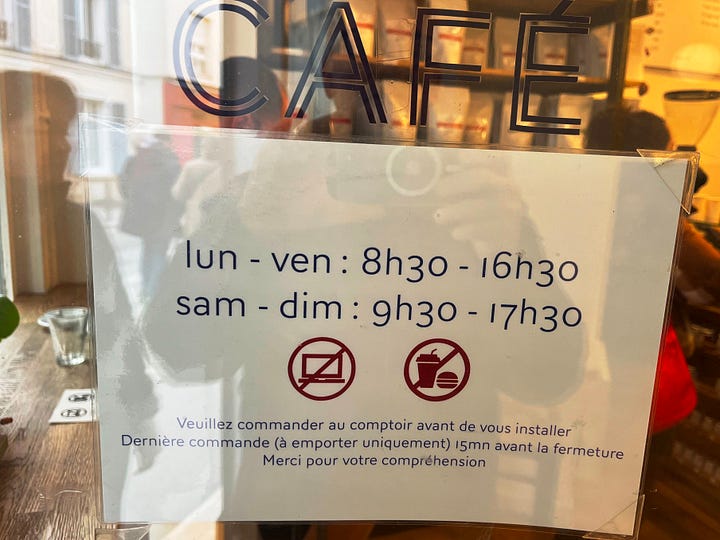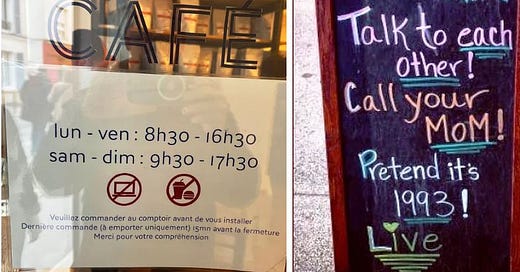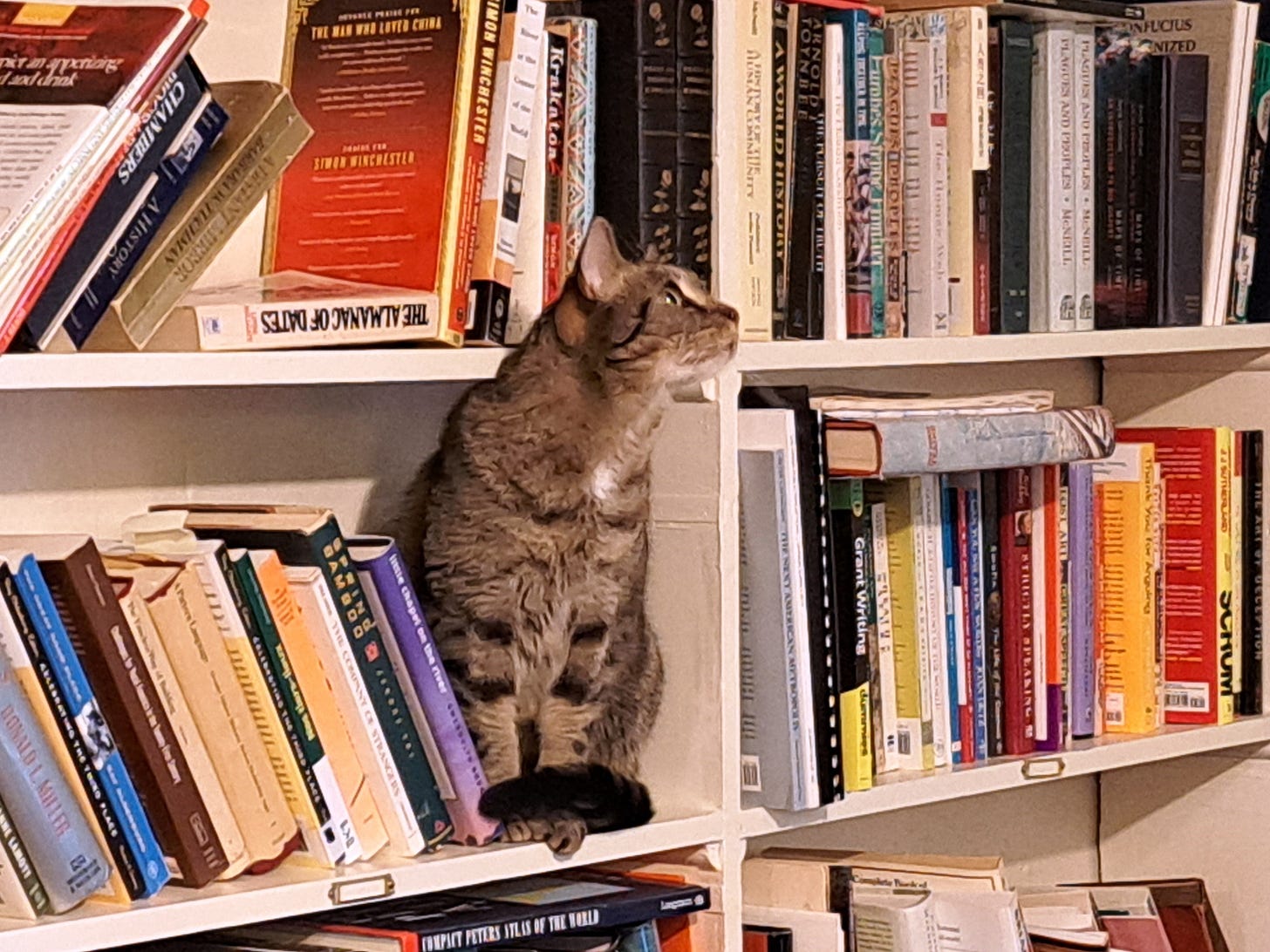What if you don't want to hear about US politics, or China?
Here's how to adjust your Substack subscriptions


The Way We Live Now
The New York Times ran a column entitled The Way We Live Now for several years. This annoyed me because I wanted to use that title, which comes from one of Anthony Trollope’s last novels. Trollope’s novel was an expose of the dishonesty and greed he saw becoming acceptable in British society. In it, he also wrote about the cruelty of laws that kept women under the control of brutal husbands. The Way We Live Now seems appropriate to the era we are embarking on, and you’ll now see it used for this newsletter and podcast.1
Email housekeeping
The US election of 2024 has changed my plans for this newsletter. It seems all the more important to share ideas, dig into history, and look for fresh solutions. I’ve had the pleasure of publishing thousands of expert authors around the world, and I want to tap them, too, and share their thinking. (You’ll see some of what’s coming below.)
This means some restructuring as well as the new title, and more frequent posts than the fortnightly schedule I’ve had up till now. Don’t worry: you can limit the emails you get from me in one quick step. Maybe you only want to hear about third places, or China. Click this link and uncheck topics you don’t care to get in your email. They’ll still be available on the site, should you have a sudden urge to find a third place or make your home green. (This works on all Substack newsletters.)
The road ahead
Here are a few of the things you’ll be seeing soon:
The Strongman Problem (dcast with Richard Higgott)
Why women didn’t save the world
Good things about “Red” America
My “Blue” neighbors and their immigrant groundskeepers and housekeepers
What’s so special about pubs?
Starbucks: It Looks Like a Third Place (a podcast with Bryant Simon)
It’s the phones: loneliness, conspiracy theories, lower test scores, and less sex
Empathy for all of us
The surprising story of the Gaia Theory and its hidden co-creator (podcast with Jonathan Watts)
Podcast line-up
I’ve just recorded a show about “The Strongman Problem” with Richard Higgott of the Brussels School of Governance. Richard wrote a chapter on this topic for our Women & Leadership, and we discussed the aftermath of the US election. He was speaking from Budapest, Hungary, and I wondered if the spotty wifi was connected with our starting to talk about Viktor Orbán, as well as more of today’s so-called strongmen. I certainly wouldn’t have been able to record that show with someone in China, since we also discussed Xi Jinping—something no one I know would dream of doing on any digital platform. We used to think we could hear a dull ping on the line when we so much as mentioned his name.
Next week, I’ll be talking about “Starbucks: It Looks Like a Third Place” with Bryant Simon of Temple University, whose fascinating analysis of the Starbucks story in Everything but the Coffee includes a chapter about the company’s claim that it has created third places. We’ll also talk about the cultural impact of Starbucks - a story that will bring up memories for those of you in other countries as well as in the US.
Up next will be a conversation with the Guardian’s environment editor, Jon Watts, about his biography of James Lovelock, an influential scientist who became an admired figure in the Green world I knew in Britain. The biography tells the surprising story of the Gaia Theory, its scientific origins, and its hidden co-creator, Lovelock’s American lover Dian Hitchcock.
Can We Find Real Community Online?
I’ve been seeing a lot of references to building community, in terms of responding to authoritarian government, and came back to the question of whether it is possible to find community online. I think the answer is no, but I also know how meaningful friendships at a distance can be. I went back to this letter in which I detailed the experience I had on a forum organized by the New York Times on this question. I now wonder if salon might be the way to think about an event: not live chat that breaks into a zillion threads with weird little avatars and screen names instead of real people and real faces.
Can We Find Real Community Online?
Yesterday the New York Times held an event called “Can We Find Real Community Online?” for subscribers only, at no charge. It was a research exercise for them, and turned out to be a good research ve…
Hosting a salon is exactly what I’d like to do. If I could, I would do it in real life in Great Barrington.2 Instead, I’m thinking of doing it using Microsoft Teams, inviting you (paid subscribers, of course, and probably anyone who asks politely) to join a live meeting at an hour that will work (as well as possible) for people in different time zones. I want to give those of you abroad a chance to ask us Americans what the heck we think we’re doing. It feels important to find more ways to connect, here at home and across the globe.
I’ve been asked to keep including poems, so here’s an obvious classic. To Autumn By John Keats Season of mists and mellow fruitfulness, Close bosom-friend of the maturing sun; Conspiring with him how to load and bless With fruit the vines that round the thatch-eves run; To bend with apples the moss'd cottage-trees, And fill all fruit with ripeness to the core; To swell the gourd, and plump the hazel shells With a sweet kernel; to set budding more, And still more, later flowers for the bees, Until they think warm days will never cease, For summer has o'er-brimm'd their clammy cells. Who hath not seen thee oft amid thy store? Sometimes whoever seeks abroad may find Thee sitting careless on a granary floor, Thy hair soft-lifted by the winnowing wind; Or on a half-reap'd furrow sound asleep, Drows'd with the fume of poppies, while thy hook Spares the next swath and all its twined flowers: And sometimes like a gleaner thou dost keep Steady thy laden head across a brook; Or by a cyder-press, with patient look, Thou watchest the last oozings hours by hours. Where are the songs of spring? Ay, Where are they? Think not of them, thou hast thy music too,— While barred clouds bloom the soft-dying day, And touch the stubble-plains with rosy hue; Then in a wailful choir the small gnats mourn Among the river sallows, borne aloft Or sinking as the light wind lives or dies; And full-grown lambs loud bleat from hilly bourn; Hedge-crickets sing; and now with treble soft The red-breast whistles from a garden-croft; And gathering swallows twitter in the skies.
I really wanted to rename the newsletter The Good Life, since understanding that concept, which comes from the Greeks and is evident in many cultures, also called la dolce vita, is at the heart of much of my work. But it would seem ironic or foolish today, in late 2024 on Planet Earth.






